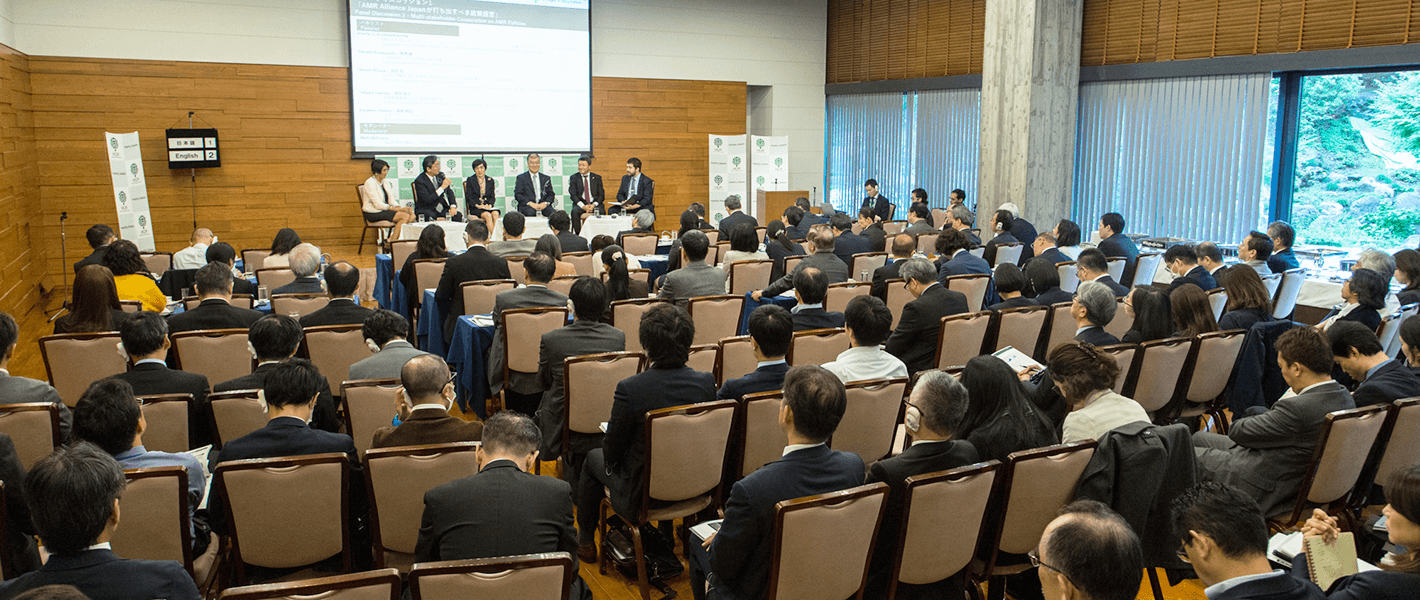[Public Comment Submission] HGPI Submits Input to the Online Consultation for the Update of the Global Action Plan on AMR (June 9, 2025)
- Home >
- Information >
- News >
- [Public Comment Submission] HGPI Submits Input to the Online Consultation for the Update of the Global Action Plan on AMR (June 9, 2025)
 Health and Global Policy Institute (HGPI) and AMR Alliance Japan submitted comments to the online consultation for the upcoming update of the Global Action Plan on Antimicrobial Resistance (GAP-AMR). The call for sharing insights is now closed.
Health and Global Policy Institute (HGPI) and AMR Alliance Japan submitted comments to the online consultation for the upcoming update of the Global Action Plan on Antimicrobial Resistance (GAP-AMR). The call for sharing insights is now closed.
The GAP-AMR was adopted at the World Health Assembly (WHA) in May 2015, requiring Member States to develop National Action Plans (NAPs) on AMR within two years. In response, Japan formulated its first AMR Action Plan 2016–2020 in April 2016, and is currently implementing its second plan, the AMR Action Plan 2023–2027.
The GAP-AMR is structured around five strategic objectives:
- to improve awareness and understanding of antimicrobial resistance through effective communication, education and training;
- to strengthen the knowledge and evidence base through surveillance and research;
- to reduce the incidence of infection through effective sanitation, hygiene and infection prevention measures;
- to optimize the use of antimicrobial medicines in human and animal health; and
- to develop the economic case for sustainable investment that takes account of the needs of all countries and to increase investment in new medicines, diagnostic tools, vaccines and other interventions.
Endorsed by the Food and Agriculture Organization (FAO), the World Organisation for Animal Health (WOAH), and the United Nations Environment Programme (UNEP), the GAP-AMR has served as a foundational international framework for AMR policy.
By the end of 2023, 178 countries had developed NAPs based on the GAP-AMR. However, only around 10% of those countries had allocated dedicated budgets for implementation. Nearly a decade after the GAP-AMR’s adoption, the need to incorporate lessons learned, country experiences, and emerging evidence has become increasingly urgent. In 2024, the 79th United Nations General Assembly (UNGA) thus agreed that the GAP-AMR should be updated by 2026.
The update process is guided by four key principles:
- promotion of the One Health approach,
- a commitment to evidence-based and impact-focused strategies,
- an emphasis on sustainability, inclusivity, and equity, and
- the development of actionable and measurable outcomes.
The update process is now underway in collaboration with relevant stakeholders. It is expected to include a landscape analysis of current NAPs and existing policies, followed by sector-specific consultations, consultations with stakeholders, open public consultations, and consultations with Member States. The updated GAP-AMR will be adopted at the WHA in May 2026, and also be endorsed at the United Nations Environment Assembly in December 2027. This consultation was conducted as part of this inclusive process to gather insights from a wide range of stakeholders.
Key Points from the submitted comments
- AMR countermeasures require a cross-sectoral response grounded in the One Health approach, involving multisectoral and multistakeholder collaboration. This perspective should also be reflected in the design of global AMR governance systems.
- Equitable access to effective antimicrobials should be ensured not only for future generations but also for all people living today.
- AMR countermeasures should be developed through patient- and citizen-centered policymaking.
- Awareness and learning support must be provided across the life course. Interventions should also reflect insights from the humanities, including personal narratives, social structures, and sociocultural contexts, given the strong influence of behavioral and social factors on antimicrobial use.
- The generation of scientific evidence remains a cornerstone of sustainable AMR policy.
- A dual focus on health and economic security is essential.
- To facilitate the assessment of AMR efforts across sectors, both outcome indicators and process indicators must be established. Drawing on examples from ESG investing and climate finance, there is a growing need to develop AMR-specific investment indicators and guidelines for financial institutions and the private sector.
- To promote sustainable investment and integrate economic and social impact evaluation into AMR strategies, governments should enhance the visibility of cost-effectiveness and societal benefits not only for AMR measures but for related policies as well.
- Ensuring the long-term sustainability of antimicrobial R&D requires maintaining a robust base of researchers and private-sector actors. This will necessitate the implementation of strong push and pull incentives. Addressing the issue of brain drain – where skilled professionals move from AMR field – is also vital to the future of AMR innovation.
HGPI will continue to closely monitor and meaningfully contribute to developments of the GAP-AMR update process. In partnership with stakeholders in Japan and globally, we remain committed to supporting sustainable AMR policies and advancing stronger global action against AMR.
[References]
- AMR Clinical Reference Center. (n.d.). What does Action Plan mean. https://amrcrc.jihs.go.jp/020/020/index.html
- Ministry of Health, Labour and Welfare. (April 5, 2016). National Action Plan on Antimicrobial Resistance (AMR) 2016-2020. https://www.mhlw.go.jp/content/10900000/0000120769.pdf
- Ministry of Health, Labour and Welfare. (April 7, 2023). National Action Plan on Antimicrobial Resistance (AMR) 2023-2027. https://www.mhlw.go.jp/content/10900000/ap_honbun.pdf
- World Health Organization. (January 1, 2016). Global action plan on antimicrobial resistance. https://www.who.int/publications/i/item/9789241509763
- World Health Organization. (May 28, 2025). Updating the Global Action Plan on AMR. https://www.qjsamr.org/technical-work/updating-the-global-action-plan-on-amr


